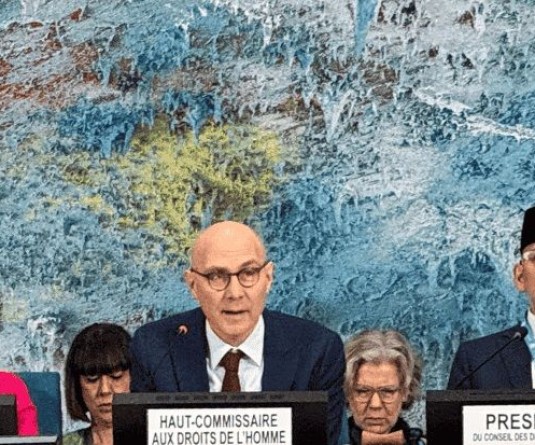Germany's Chancellor Angela Merkel attends a news conference during the second face-to-face EU summit since the coronavirus disease (COVID-19) outbreak, in Brussels, Belgium on October 2, 2020. (REUTERS Photo)
BRUSSELS/LONDON, October 2 (Reuters): German Chancellor Angela Merkel said she had no breakthrough to announce in EU talks with Britain but remained optimistic on Friday that sealing a deal on a new trade relationship after Brexit was still possible before the end of the year.
With just two weeks before what both British Prime Minister Boris Johnson and the EU have set as a deadline for reaching a trade agreement, there are still major hurdles to ensuring smooth ties after a standstill post-Brexit transition ends.
"I can't announce a breakthrough," Merkel told a news conference after two days of talks among the 27 national EU leaders in Brussels, including on Brexit. "As long as negotiations on Brexit are ongoing, I'm optimistic."
Ireland's Prime Minister Micheal Martin said earlier on Friday Britain must respect the Brexit arrangements it had agreed with the bloc for the sensitive Irish border as a fraught week with little progress towards a new trade deal wrapped up.
Johnson will speak to the head of the EU's executive, Ursula von der Leyen, on Saturday to agree next steps after the bloc launched a legal case against Britain over moving to undercut their earlier divorce deal.
Speaking after the summit on Friday, von der Leyen said it was time to "intensify" Brexit talks with time available by the end of the year to put a new deal in place running out.
"Where there's a will, there's a way," she said.
"We have made progress on many, many difficult fields but the main ones all remain very much open," she added, naming guarantees on a level playing field of fair competition as a key sticking point. "There is still a lot of work to do."
CRUNCH TIME
Referring to another major sticking point in the trade talks, Merkel also said the UK's new deal on fisheries with Norway announced this week "shows... agreements can be found".
The deal includes access to each other's waters, as well as annual fishing quotas negotiations. The latter has long been favoured by Britain but so far rejected by the EU, where fisheries is politically sensitive for France.
But an EU diplomatic source said Merkel's comment suggests that positions may be inching closer after the sides discussed a potential compromise that would also include a "phasing-out mechanism" for fish quotas.
Under this idea, Britain would increase its quotas in time, rather than overnight from Jan. 1, 2021, when it has so far said it would become an "independent coastal nation" with full control of its own waters and who fishes in them.
With businesses increasingly concerned over what future trading terms will be, U.S. Citi bank expected the two sides to agree "a rudimentary Brexit deal" and JPMorgan agreed a deal was more likely than not, though only a narrow one.
Martin told his EU peers earlier in the day that adhering to Britain's EU divorce bill provisions on the sensitive Irish border was crucial: "That is important in terms of trade, protection of jobs," he said.
Ireland and the EU fear that the UK's new Internal Market Bill, which Britain admits breaks the international law by undercutting parts of its Brexit divorce deal, could threaten the fragile peace on the island of Ireland.
U.S. special envoy for Northern Ireland Mick Mulvaney said in London the message he would take back to Washington was that all sides were committed avoiding that.
Beyond the border controversy, gaps in trade talks also linger over ways to solve disputes. The sides will continue negotiating until the EU leaders's next summit on Oct.15-16.
The EU says an agreement must be at hand by early November to ensure time for the bloc to ratify it before the end of the year. The bloc is adamant, however, that it would not implement any new UK deal if London undercuts the divorce bill.






